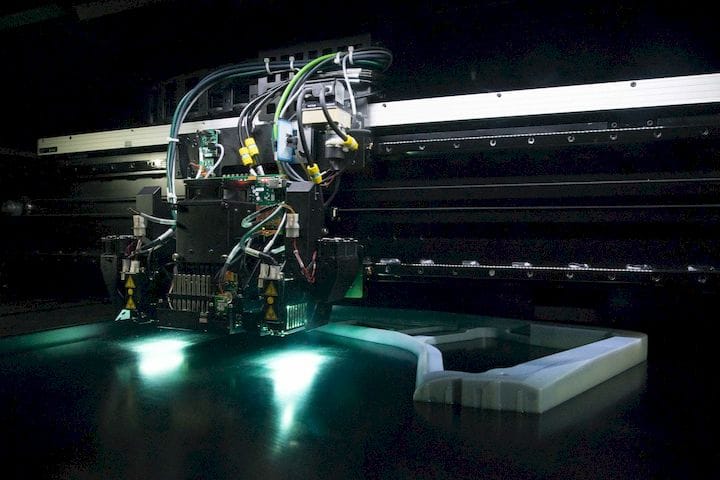![3D Hubs is now focusing only on professional markets, but why? [Source: 3D Hubs]](https://fabbaloo.com/wp-content/uploads/2020/05/image-asset_img_5eb0a6f6f3365.jpg)
You’ve probably heard that 3D Hubs is about to shut down their DIY community 3D printing network, as we wrote the other day.
The company began in 2013 as a network for community operators of 3D printers to share their equipment to others who did not have access to machines, and make a bit of money on the side. At one point 3D Hubs staff would describe their approach as the “AirBNB of 3D printing”. That’s indeed how it all started.
But why shut that down?
Their stated reasons are pretty clear: they want to “revolutionize manufacturing” and “make it easy and accessible”, and this is perhaps best done by their professional network, called “Fulfilled by 3D Hubs”. This service includes not only 3D printing but other making processes such as CNC and injection molding. It’s a well-rounded service that no doubt will do quite well.
However, those involved in their original community network are obviously disappointed. For some participants it was even a way to make a reasonable side income. Now those people will have to either give up that income or find another community network.
I’m not sure they will.
Yes, there are some community networks out there, but the truth is that it appears a community 3D printer network is not a viable business opportunity.
You have to think back to the early days of 2013 when 3D Hubs was conceived. The 3D print universe was quite different at that time, as there were very few devices on the market. The low-cost units produced poor quality prints as compared to the much more expensive machines available commercially.
This pricing gap was a major part of the 3D Hubs opportunity. But over time that gap closed: lower-cost machines gradually became more capable, producing better quality prints in more interesting materials. Meanwhile, the higher-cost machines slowly dropped in price, and lower-cost “clone” machines pushed their prices even lower.
Thus the difference between desktop and industrial machines has closed significantly. In fact, we’ve begun describing a new class of “Professional” 3D printers that represents some of this change.
We visited 3D Hubs’ headquarters in Amsterdam a few years ago and noted the effort they put in to support the community network. It takes considerable staff and skills to run a responsive worldwide organization providing services to thousands of participants.
However, for all that effort, they would gain only a small amount of income per transaction. For a long time I wondered how they would make enough money to support the work they undertook.
Meanwhile the desktop 3D printer market changed. While many of the original 3D printer manufacturers faded away, they were replaced by low-cost, but very capable, Asian equipment and several highly regarded open source producers. Between these two sources, tens of thousands, perhaps hundreds of thousands of inexpensive desktop 3D printers were delivered with many more to come.
Where did these devices go?
They went into the homes of hobbyists, the workshops of small manufacturers and the offices of professionals.
The very same people who might have otherwise ordered prints through 3D Hubs’ original community network. Now they had their own equipment.
3D Hubs’ original target market essentially evaporated.
In response they initiated a switch to professional markets, as has almost every other 3D printing operation in recent years. This is the only way to succeed, unless you are one of the few remaining successful manufacturers of desktop equipment.
3D Hubs will succeed in this transition, because there is plenty of demand as small manufacturers discover the benefits of 3D printed parts, and their lack of knowledge of how to produce quality results with the technology.
But for those in 3D Hubs’ community network, it is a sad moment. For a time it seemed that the 3D Hubs community concept would be a fantastic service, but in the end everyone discovered that market really never existed.
Via 3D Hubs











